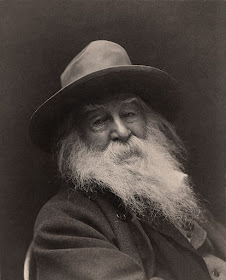APHORISMS
Even
the desert blooms.
Flowers
grow a very great distance from the sun.
Twisted
logic is the tendrils of an evil spirit.
A
partial truth is always more dangerous than unalloyed truth or a varnished lie.
When
you do not say what you mean, you cannot be trusted in anything you say.
Guess
what?—“a white lie” is a racist idiom.
Deepest
blue, the desert sky is untainted, barren because it harbors no rain.
Eternity
does not distinguish between the fresh-faced moon and the world-weary sun.
In
a street fight a sword is mightier than a pen.
Whoever
said a dog’s bark is worse than his bite hasn’t been bitten.
Good
governance is hard to find.
A
penny invested is a penny gambled.
A
soap that floats has value only inside a bathtub.
The
government that lacks transparency evades accountability and in all probability
has something to hide.
The
law used to perpetrate crime and to sanction impunity for crime is the misrule
of law.
Propaganda
is the gruel eaten by prisoners of the state.
Politicization
of the judiciary weakens it, ensuring that those who have less in life will
have even less in law.
Intelligence
with integrity is fair-mindedness, without integrity it is venality.
The
purpose of education is to teach not only critical thinking but also historical
thinking, so that all citizens develop the capacity to evaluate ongoing changes
from the standpoint of past transformations.
Today
the biggest single reason for famine is war.
Anyone
who lies is doing the devil’s work. It is his telltale signature.
Genuine
democracy, which subsists in the democratic values and principles internalized
by the people, is subverted when criminal leaders controvert the laws embodying
the people’s deepest aspirations for freedom from tyranny.
A
good book is a good friend you engage again and again.
The
Apostle Paul inveighed against scoffers, calling them fools, yet he did not
suffer the Gehenna threatened by Jesus.
A
government of values and principles is degraded by a regime of patronage and
corruption.
An
untimely death waylays the conversion of the damned.
Democracy
is a work in progress, fascism a work in regress.
Forgetfulness
is the incomprehension of those who misconstrue the past.
Remembrance
is the vision of the future.
Kindness’
roots are nourished by compassion.
Cruelty
is a volcano. It thrives on the magma of abuse.
He
who does not take a stand sits on his rights.
The
heart makes up its reasons.
The
right to information is a necessary check against the abuse of power. It is an
essential means whereby the oppressed seek, pursue, and obtain redress for just
grievances.
You
can’t have fake news and democracy, too.
Charity
culminates in humanity.
Originally
published in Cacti Fur (April 25,
2018)



